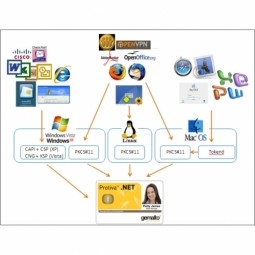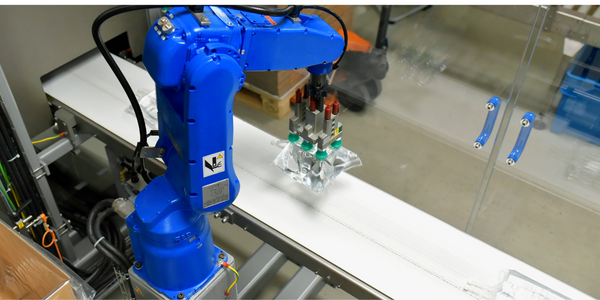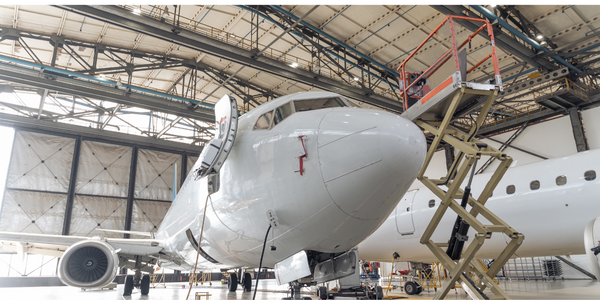技术
- 平台即服务 (PaaS) - 应用开发平台
适用行业
- 生命科学
用例
- 库存管理
- 供应链可见性(SCV)
关于客户
RTRS交易平台的客户是大豆价值链中的利益相关者。其中包括大豆生产商、RTRS 认证材料的买家以及市场利益相关者。该平台旨在促进他们参与 RTRS Responsible Soy 市场。它为他们提供了一个用户友好的界面,允许他们交易 RTRS 积分并注册 RTRS 物理材料销售。该平台还为他们提供了对整个供应链中认证产品数量进行集中注册、监控和控制的工具。它还促进认证生产商和市场利益相关者之间的交易,检查可持续性声明,并提供管理报告。
挑战
负责任大豆圆桌会议 (RTRS) 是一项于 2006 年成立的国际倡议,旨在促进负责任的大豆生产。该组织致力于通过大豆价值链中主要利益相关者的承诺以及负责任生产的全球标准,确保负责任大豆生产的增长。 RTRS 负责任大豆生产标准包括停止转换具有高保护价值的地区、推广最佳管理实践、确保公平的工作条件以及尊重土地保有权主张的要求。然而,实施生产认证计划和监管链认证计划提出了重大挑战。
解决方案
为了应对这一挑战,RTRS 推出了 RTRS 交易平台。该平台为 RTRS 认证材料的生产商和买家提供便利。它是一个允许 RTRS 积分交易和 RTRS 实物材料销售注册的技术平台。该平台的设计易于使用,利益相关者只需点击几下即可参与 RTRS Responsible Soy 市场,同时确保透明度和可追溯性。 RTRS 平台具有多种功能,包括集中注册、监控整个供应链中的认证产品数量、促进认证生产商和市场利益相关者之间的交易、检查可持续性声明以及管理报告。
运营影响

Case Study missing?
Start adding your own!
Register with your work email and create a new case study profile for your business.
相关案例.

Case Study
Corporate Identity Solution Adds Convenience to Beckman Coulter
Beckman Coulter wanted to implement a single factor solution for physical and remote logical access to corporate network. Bechman Coulter's users were carrying smart card badges for doors, but also needed a one-time password token to access to our corporate network when they were not in the office. They wanted to simplify the process.

Case Study
Embracing Business Success in Real Time
· Increase control over growing Big Data to improve business decisions · Manage data for 28,000 biotechnology stockkeeping units in the fields of microbiology, molecular biology, animal cell cultures, plant tissue cultures, and lab ware for laboratory chemicals · Accelerate report generation and analysis with real-time data

Case Study
Flow Robotics: Scaling Up Production and Accelerating Product Development with IoT
Flow Robotics, a Danish manufacturer, developed flowbot™ ONE pipetting robots to alleviate the strain on bioanalysts in life-science laboratories and hospitals across Europe. These robots were designed to automate part of the testing process, speeding up the time it takes to produce results and reducing pressure on staff. However, the company faced challenges in scaling up production and accelerating product development. High workloads and physically challenging conditions have long been an issue for laboratory professionals. Flow Robotics estimates that around half of medical lab technicians carry out the same arm movements for at least a quarter of their working day. The American Society for Clinical Pathology reported that 85% of laboratory professionals feel burnt out; 36% struggle with inadequate staffing; and 32% face a heavy workload and pressure to complete all testing on time.
Case Study
Material Intelligence at Ethicon: Sustaining Medical Device Manufacturability and Improving Patient Care
Ethicon, a world-class medical devices company, faced several challenges in its operations. The rapid selection of manufacturing materials compliant in global markets was critical to assure patients, practitioners, and purchasing organizations of the biocompatibility of their medical devices. Ensuring supply chain continuity and minimizing risks of obsolescence for medical devices due to regulatory changes were also crucial in meeting Ethicon’s ongoing commitment to maintaining patient care. Furthermore, the engineers at Ethicon were developing the next generation of medical devices and needed to access historical material data to accelerate new product development. The process of centralizing and digitalizing its materials information was a significant challenge that Ethicon needed to overcome.

Case Study
Revolutionizing Aerospace Industry with 3D Printing: A 63% Lighter Titanium Part
GE Aviation, a renowned name in the aerospace industry, recognized the potential of 3D printing technology in transforming the sector. The primary challenge was to reduce the weight of the aerospace parts, which would directly impact the fuel costs. A lighter airplane would mean lower fuel consumption, leading to cost savings and a smaller carbon footprint. However, achieving this weight reduction without compromising the strength and functionality of the parts was a significant challenge. Traditional manufacturing methods were not able to provide the desired weight reduction while maintaining the required stiffness and strength of the parts. The challenge was to find a solution that could create strong, light, and functional aerospace parts.
Case Study
IWT's Transformation: Customizing with Efficiency in IoT
IWT, a company specializing in the design, manufacture, and installation of washing systems for the life sciences and pharmaceutical industries, faced a significant challenge in managing its wide product portfolio. The company manufactures 45 different models, 60% of which are customized to some degree. This high level of customization, combined with limited production quantities, necessitated a controlled process for managing the release of engineering changes. The goal was to achieve efficiency, reduce process time, and better coordinate production throughout the organization. The need for strict compliance in heavily regulated industries further complicated the situation. IWT's existing PLM journey with Dassault Systèmes’ SOLIDWORKS for 3D CAD and Enovia for managing CAD data and Bills of Materials (BOMs) was proving inadequate. The system had limited part classification, no workflow, and no tool to ensure data consistency. The management of non-CAD documents was also a challenge, with information often difficult to find and access.







